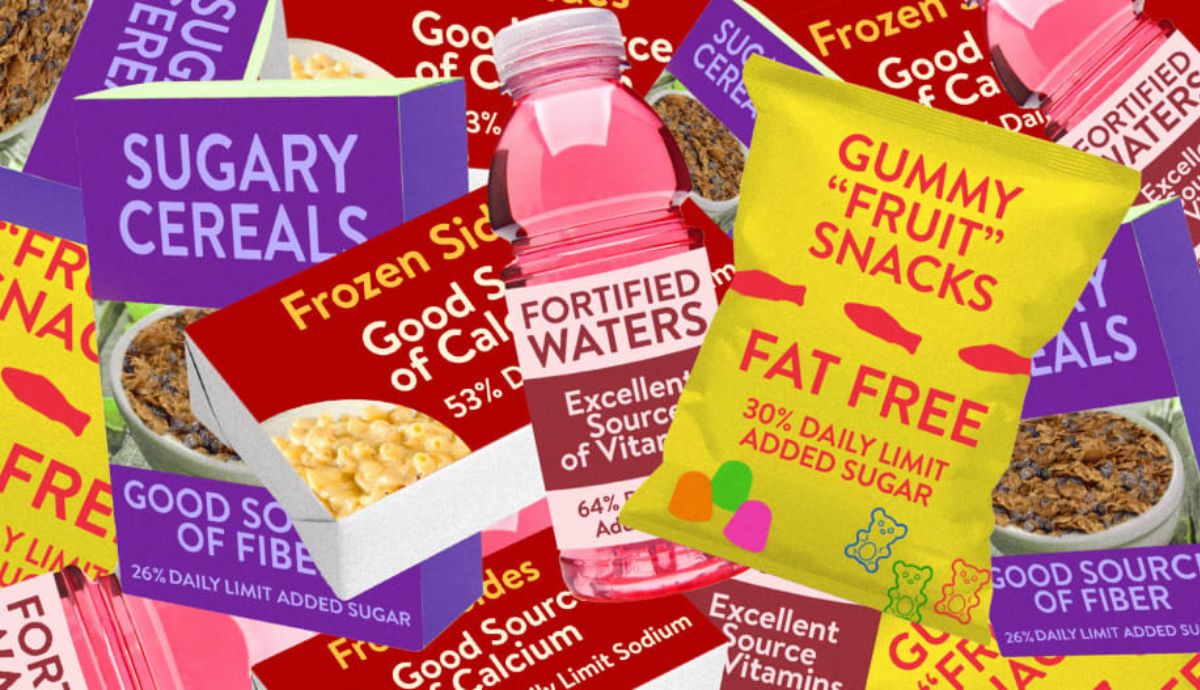Food Labelling Claims: Criticality and Controversy
August 3, 2023

Keywords: Food labelling claims, Food safety standards, Food labelling, Food products, Controversy
The prominence of food labelling claims on food packs are increasing at a rapid rate. They have major influence on the mindset of consumers via advertisements shown digitally or in print form. Therefore, understanding these food claims is critical yet can be challenging for consumers as they navigate the abundance of food products available.
The Food Safety and Standards Authority of India (FSSAI) plays a pivotal role in setting the standards and regulations for food labelling claims in India. Through their guidelines, they ensure that claims are accurate, informative, and not misleading to consumers. Additionally, the Advertising Standards Council of India (ASCI) serves as a watchdog, scrutinizing food labelling claims and ensuring they adhere to ethical advertising practices.
Food Labelling claims and its types
Food labelling claims play a crucial role in informing consumers about the nutritional value, health benefits, and specific characteristics of food products. These claims serve as a means of communication between manufacturers and buyers, enabling informed choices. The Food Safety and Standards Authority of India (FSSAI) defines a claim as any representation that states, suggests, or implies certain qualities of a food product, including its origin, nutritional properties, nature, processing, composition, or other aspects.
There are various types of food labelling claims that provide specific information to consumers.
Nutrition claims focus on the nutrient content of a product, helping consumers choose items with desired nutritional benefits. Examples include claims like "fat-free," "low in sodium," or "sugar-free."
Health claims suggest a relationship between a food product and its impact on health, such as lowering cholesterol or reducing the risk of certain diseases. These claims must be supported by scientific evidence and comply with FSSAI regulations.
Non-addition claims highlight the absence of specific substances in a food product, such as sugars, sodium salts, or additives.
Food category-specific claims allow for specific claims related to certain food categories, like edible vegetable oils or breads.
Claims using certain words or phrases, such as "natural" or "fresh," have defined conditions for their use.
Lastly, claims requiring certification, like "organic" or "vegan," can only be made if the necessary authority certificates have been obtained.
Understanding these different types of food labelling claims is essential for consumers to make informed choices and ensure the accuracy and transparency of the information provided on food packaging.
To know more on Food labelling claims, refer blog: Add the link of the blog onDecoding Food Labelling Claims in India: What You Need to Know!
Criticality of Food Labelling Claims
It is a well-known fact that food claims on products influences consumer choices. In a study done by L.D. Diaz on review of health claims on functional food products, it was concluded that health related claims specifically encourage healthy consumer eating and enables them to make better informed choices of food based on the claim statement on the pack and the health benefit it confers on the body. Therefore, it becomes all the more critical to declare only truthful claims with proper scientific justification as per the FSSAI regulations.
Challenges and Controversies: Bournvita Case Study
While food labelling claims aim to provide valuable information, challenges and controversies do arise. Some common issues include:
Misleading claims: Certain manufacturers may use misleading terms or exaggerated claims to entice consumers.
Lack of standardization: There is a need for more standardized definitions and regulations to ensure consistency across products.
Enforcement challenges: Despite regulations in place for most food claims, monitoring and enforcement of food labelling claims remain a challenge in India. Although FSSAI & ASCI have gotten into the act, certain players have been declaring misleading claims on food products since a long time.
Let’s look at a case study of Bournvita to understand the critically of food claim statements.
Bournvita is a powdered drink beverage, positioned for children for better health benefits owned by Mondelez India. The controversy surrounding Bournvita, gained attention when social media influencer Revant Himatsingka criticized the product in a viral video. In his video, Himatsingka called out Bournvita for its claim statements made on the label itself as a health drink while containing a high sugar content. He also raised concerns about an ingredient Colour (150C) inBournvita that he claimed could potentially cause cancer and reduce immunity.
After the video gained significant traction, Himatsingka received a legal notice from Cadbury, the parent company of Bournvita, leading him to take down the video and issue an apology. Bournvita responded to the controversy through official statements on social media, emphasizing that their product contains essential nutrients and claiming to have earned consumer trust over several decades.
Taking notice on this controversy, the National Commission for Protection of Child Rights (NCPC) sent a legal notice to Mondelez on the same. It stated that the claims made on the label are misleading and asked the company to withdraw all misleading claims and advertisements after review. A spokesperson from Mondelez gave a statement earlier on the video stating that, “the claims are made after following the regulations and claim approval process and their product is scientifically made by senior scientists and nutritionists.”
To read more on this, refer the article: Bournvita sugar content row: NCPCR asks health drink brand to remove 'misleading' ads | India News - Times of India (indiatimes.com)
The controversy highlights the ongoing debate surrounding food products marketed as healthy while having high sugar content. It also raises questions about the transparency of ingredient labeling and the responsibility of companies in ensuring the accuracy of their claims. The incident serves as a reminder of the influence of social media in driving public discourse and the potential legal implications for influencers and brands involved in such controversies.
About LabelBlind®
Established in 2018 and based in Mumbai, LabelBlind® specialises in the area of Digitising Food Labelling and Regulatory Compliance. FoLSol® by LabelBlind® presents India’s 1st Digital Food Labelling Solution. The SaaS platform supports Food Businesses to be Labelling Compliant and Build Consumer Trust. FoLSol® by LabelBlind® is designed to strengthen the food labelling ecosystem across a wide spectrum of services including, Packed Food Labelling, Menu Labelling, Exports Labelling, Nutraceuticals and Food Supplements Labelling and Labelling for Ecommerce players. FoLSol® Digital Food Labelling Solution is fast, accurate, and cost effective. The company is ISO9001 certified in its processes.
References
Food Safety and Standards (Advertising and Claims) Regulations, 2018. Food Safety and Standards Authority of India (FSSAI). Compendium_Advertising_Claims_Regulations_14_12_2022.pdf (fssai.gov.in)
Food Labelling claims in India. Vakil Search.
The Advertising Standards Council of India (ASCI).
The Advertising Standards Council Of India - ASCI (ascionline.in)
An international regulatory review of food health-related claims in functional food products labeling. LD Diaz, VF Ruiz, M Camara. May, 2020.
Bournvita Controversy: All That Has Happened So Far (bqprime.com).
Bournvita Controversy: All That Has Happened So Far (bqprime.com)
Bournvita sugar content row: NCPCR asks health drink brand to remove 'misleading' ads. India News - Times of India (indiatimes.com)

Olivia Crasto (MSc in Food Processing & Preservation)
Olivia is a Learner for Life, Eco enthusiast and loves to experience nature and its beauty
